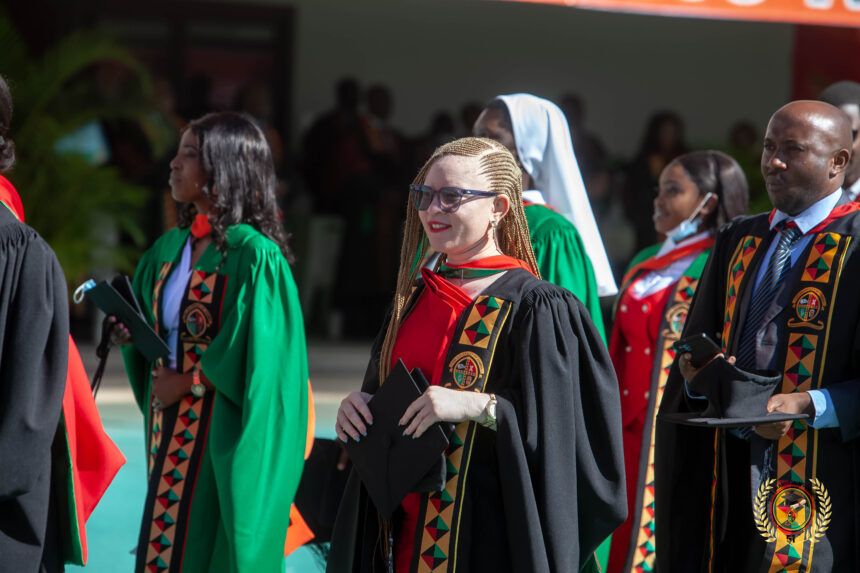The University of Zambia (UNZA) has officially unveiled four new Master of Science (MSc) programmes under its Department of Pure and Applied Physics, signalling a major leap in the country’s commitment to fostering advanced skills in science and technology.
The newly introduced programmes—MSc in Medical Physics, MSc in Nuclear Engineering, MSc in Space Science and Applications, and MSc in Health Physics and Radiation Protection—are designed to meet the increasing national and regional demand for specialised scientific expertise. These areas have been identified as critical to Zambia’s future development, particularly in health, energy, environmental safety, and space research.
Officiating the launch on behalf of the Minister of Technology and Science, Permanent Secretary Brilliant Habeenzu emphasized the strategic importance of the programmes in transforming the nation’s socioeconomic landscape.
Reading from a speech by Minister Felix Mutati, Habeenzu stated,
“Skills will change the lives of people and drive Zambia toward becoming a competitive country propelled by science.”
He highlighted that the government sees locally-driven solutions and innovation as central to its development agenda, and reiterated that the programmes are aligned with Zambia’s national Science, Technology and Innovation Policy. This policy aims to strengthen research, promote innovation, and build the country’s human capital.
Minister Mutati also pointed out the synergy between the new MSc programmes and Zambia’s 8th National Development Plan (8NDP), which identifies science and technology as critical enablers of inclusive and sustainable national development.
UNZA Vice Chancellor, Professor Mundia Muya, also spoke at the launch, revealing that the MSc in Space Science and Applications is already underway. This programme, he noted, has benefitted from strong international partnerships, particularly with the Fast4Future Project, NASA, and Montana State University.
The remaining three programmes—Medical Physics, Nuclear Engineering, and Health Physics and Radiation Protection—were developed through a technical cooperation agreement between the Ministry of Technology and Science and the International Atomic Energy Agency (IAEA). These are scheduled to begin in the next academic year.
Professor Muya expressed the university’s commitment to not only producing world-class scientists but also equipping them to offer practical solutions to Zambia’s development challenges.
“These programmes are not just academic in nature—they are rooted in the real-world needs of Zambia and Africa at large. Through these initiatives, we aim to be part of global scientific progress while addressing local development issues,” he said.
The launch event, held in Lusaka, was attended by academics, government officials, development partners, and students, all of whom welcomed the development as a bold step toward advancing scientific education and innovation in Zambia.
With this strategic launch, UNZA strengthens its position as a hub for scientific research and education in the region, while also positioning Zambia to play a more active role in global conversations on health, energy, and space exploration.






